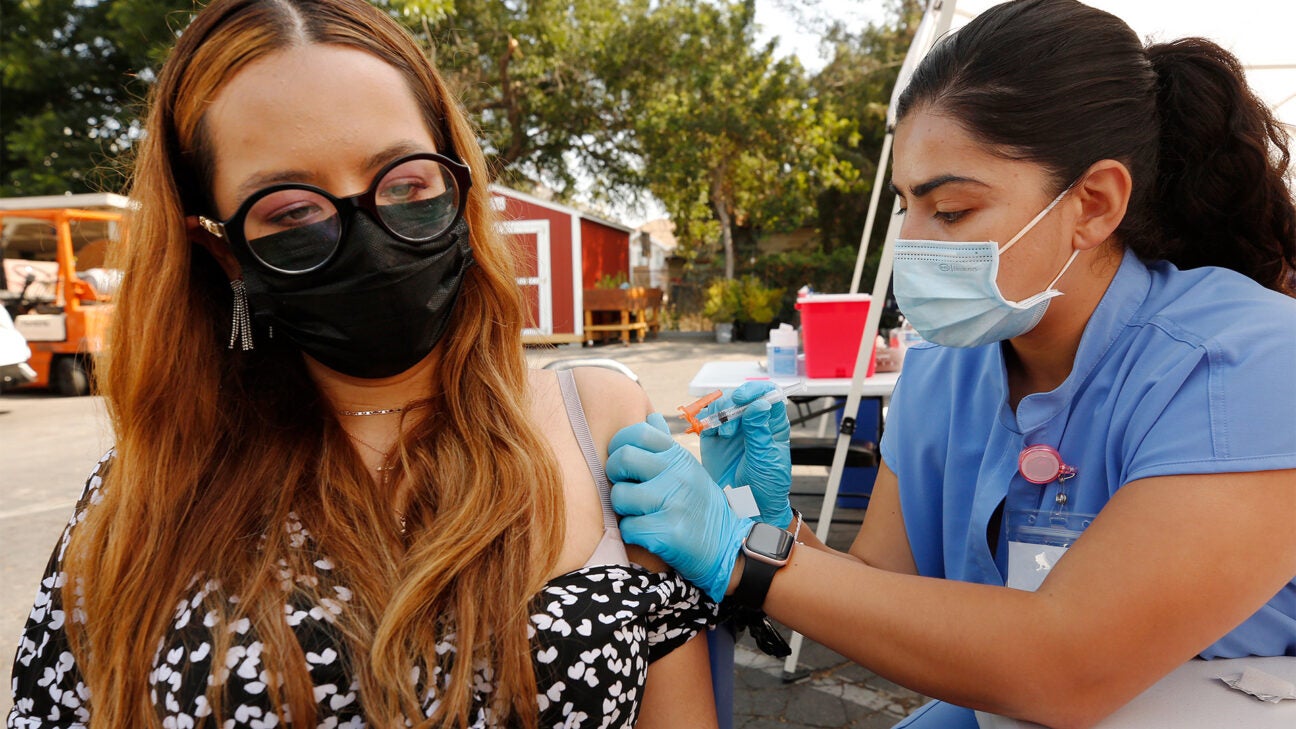
- Johnson & Johnson submitted data to the Food and Drug Administration supporting the use of a booster of its vaccine.
- The FDA’s vaccine advisory committee is scheduled to meet October 14 and 15 to discuss boosters of the J&J and Moderna-NIAID vaccines.
- The initial series of the J&J vaccine is a single dose, while both the Pfizer and Moderna mRNA vaccines approved in the United States requires two doses for the initial series.
Johnson & Johnson said Tuesday that it has submitted data to the Food and Drug Administration to support the use of a booster dose of its COVID-19 vaccine in people 18 years and older.
But the company said it will leave it up to the FDA and the Centers for Disease Control and Prevention to decide who should receive a booster and how long after the initial dose it should be given.
The FDA’s vaccine advisory committee is scheduled to meet on October 14 and 15 to discuss boosters of the J&J and Moderna-NIAID vaccines.
The Vaccines and Related Biological Products Advisory Committee (VRBPAC) will also discuss “mix and match” boosters — when people receive a booster different from their initial regimen.
The initial series of the J&J vaccine is a single dose, while both mRNA vaccines approved in the United States require two doses for the initial series.
Booster increases immune protection
J&J’s submission included data from three separate studies showing that a booster given 2 or 6 months after the initial dose increased immune protection.
In a phase 3 study, a booster given 56 days after the initial dose provided 94 percent protection against symptomatic COVID-19, and 100 percent protection against severe or critical COVID-19.
Another phase 1/2 study showed that 1 week after a 6-month booster was given, antibody levels were nine times higher than after the initial dose. This increased to 12-fold after 4 weeks, the company said this week.
“Our clinical program has found that a booster of our COVID-19 vaccine increases levels of protection for those who have received our single-shot vaccine to 94 percent,” Dr. Mathai Mammen, head of global research and development for J&J’s vaccine arm, said in a news release.
“At the same time, we continue to recognize that a single-shot COVID-19 vaccine that provides strong and long-lasting protection remains a crucial component to vaccinating the global population.”
Last month, the company released data showing that a single dose of its COVID-19 vaccine was 79 percent effective against symptomatic COVID-19 infections and 81 percent effective against hospitalizations in the US.
This included a time period when the Delta variant was spreading widely in the country.
The study also showed that effectiveness against infection and hospitalization remained stable up to 5 months after the initial dose.
These studies have not yet been published in a peer-reviewed journal.
Millions of Americans waiting for boosters
Last month, the FDA and CDC approved a booster dose of the Pfizer-BioNTech vaccine for certain people at least 6 months after their second dose.
But Dr. Carlos del Rio, a professor of medicine at Emory University School of Medicine, said the millions of Americans who received the J&J vaccine were left wondering when they’d be eligible for a booster. Guidance from the CDC and FDA is needed, he added.
The same is true for those who received the Moderna-NIAID vaccine.
According to the CDC, about 15 million Americans have received the J&J COVID-19 vaccine.
The FDA and CDC review vaccine data as it’s available, which is why the Pfizer-BioNTech booster was first in line.
“Pfizer was the first step,” said CDC director Dr. Rochelle P. Walensky, speaking last week on SiriusXM’s Doctor Radio program. “They were the ones who came forward with their data soonest and asked for their authorization first.”
“But we have not forgotten about you — all of those who have gotten J&J, and all of those who have gotten Moderna,” Walensky added.
People waiting for the J&J vaccine are still well-protected against severe COVID-19 and hospitalization, del Rio said.
“The [J&J] vaccine is still working as a single-dose vaccine,” he said. “I want to reassure people that there is no need to ‘run for a booster.’ You can take your time and walk to it.”
After the FDA reviews booster data from J&J and Moderna, the CDC’s vaccine advisory committee will meet to discuss whether to recommend these boosters and for which groups.
del Rio expects the same groups will be prioritized as were for the Pfizer-BioNTech booster — older adults, others at risk of severe COVID-19, and those at risk of complications of COVID-19 due to frequent exposure to the coronavirus.
* This article was originally published here
No comments:
Post a Comment